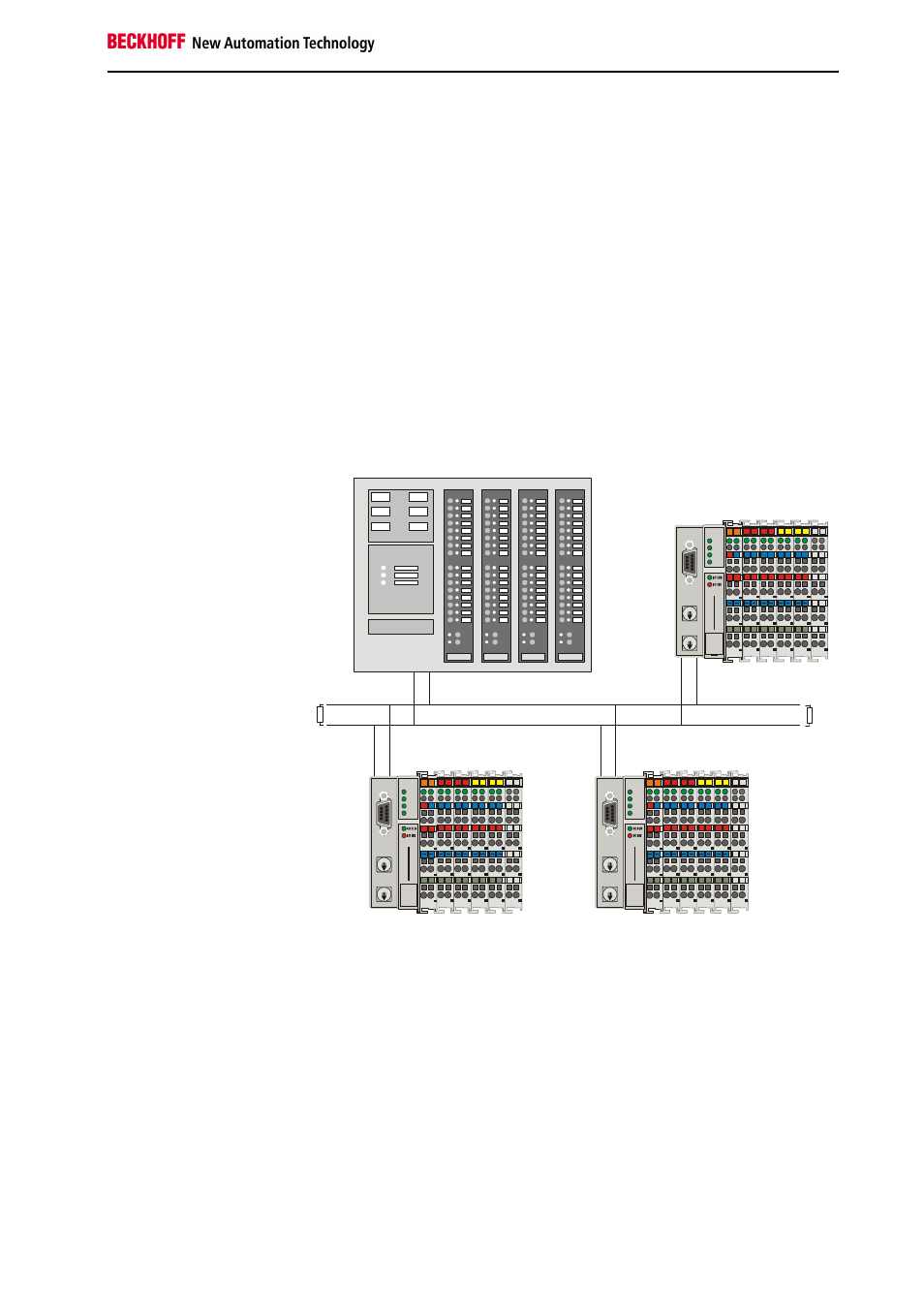Modbus, Basic principles, Bus topology – BECKHOFF BC7300 User Manual
Page 19

BC7300
19
MODBUS
Basic Principles
The MODBUS is a master-slave bus system in which only one device (the
master) actively starts a transaction (queries). The passive device (the
slave) then sends an answer (response) if the telegram was directly
addressed to it and provided that it has no errors.
Bus Topology
The BK7300 uses the RS485 physical data transmission. This means that
a two-wire cable is needed for the data transmission. The communication
structure corresponds to the linear topology. At the beginning and end of
the lines the bus requires termination resistors. The structure of the
Modbus network is similar to that of PROFIBUS.
02
02
01
01
+
+
+
+
PE
PE
PE
PE
RUN
RX
TX
MODBUS
B
E
C
K
H
O
F
F
24V
0V
0
9
8
7
6
5
4
3
2
1
0
9
8
7
6
5
4
3
2
1
BK
7
30
0
02
01
02
01
+ +
PE PE
02
01
+ +
PE PE
02
01
+ +
PE PE
02
02
01
01
+
+
+
+
PE
PE
PE
PE
RUN
RX
TX
MODBUS
B
E
C
K
H
O
F
F
24V
0V
0
9
8
7
6
5
4
3
2
1
0
9
8
7
6
5
4
3
2
1
BK
7
30
0
02
01
02
01
+ +
PE PE
02
01
+ +
PE PE
02
01
+ +
PE PE
02
02
01
01
+
+
+
+
PE
PE
PE
PE
RUN
RX
TX
MODBUS
B
E
C
K
H
O
F
F
24V
0V
0
9
8
7
6
5
4
3
2
1
0
9
8
7
6
5
4
3
2
1
BK
7
30
0
02
01
02
01
+ +
PE PE
02
01
+ +
PE PE
02
01
+ +
PE PE
Broadcast function
Beckhoff Bus Terminal Controllers support the broadcast function. For this
purpose the slave address in the telegram must be set to "00". Slaves do
not answer a broadcast. Not all functions are supported.
Functions that support a broadcast:
•
5
Force single coil
•
6
Preset single register
•
15
Force multiple coils
•
16
Preset multiple register
PIN assignment
The BC7300 uses RS485 for the data transmission. A screened two-wire
cable is sufficient. The connection to the coupler is a 9-pin sub-D socket.
The data line is connected to PIN 3 and PIN 8.
